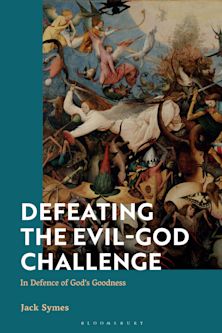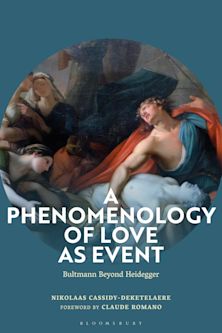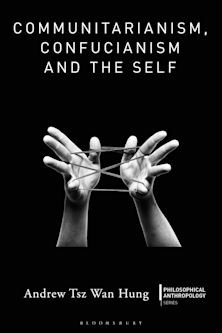The Kalam Cosmological Argument, Volume 1
Philosophical Arguments for the Finitude of the Past
The Kalam Cosmological Argument, Volume 1
Philosophical Arguments for the Finitude of the Past
This product is usually dispatched within 1 week
- Delivery and returns info
-
Free US delivery on orders $35 or over
Description
Did the universe begin to exist? If so, did it have a cause? Or could it have come into existence uncaused, from nothing? These questions are taken up by the medieval-though recently-revived-kalam cosmological argument, which has arguably been the most discussed philosophical argument for God's existence in recent decades. The kalam's line of reasoning maintains that the series of past events cannot be infinite but rather is finite. Since the universe could not have come into being uncaused, there must be a transcendent cause of the universe's beginning, a conclusion supportive of theism.
This anthology on the philosophical arguments for the finitude of the past asks: Is an infinite series of past events metaphysically possible? Should actual infinites be restricted to theoretical mathematics, or can an actual infinite exist in the concrete world? These essays by kalam proponents and detractors engage in lively debate about the nature of infinity and its conundrums; about frequently-used kalam argument paradoxes of Tristram Shandy, the Grim Reaper, and Hilbert's Hotel; and about the infinity of the future.
Table of Contents
Foreword
Introduction
Paul Copan (Palm Beach Atlantic University, USA)
Part 1. Whatever Begins to Exist Has a Cause
1. A New Critique of Theological Misinterpretations of Physical Cosmology
Adolf Grünbaum (University of Pittsburgh, USA)
2. Prof. Grünbaum on the 'Normalcy of Nothingness' in the Leibnizian and Kalam Cosmological Arguments
William Lane Craig (Talbot School of Theology, USA)
Part 2. The Universe Began to Exist
Deductive Arguments
2.1 Argument based on Impossibility of Existence of an Actual Infinite
3. Must Metaphysical Time Have a Beginning?
Wes Morriston (University of Colorado Boulder, USA)
4. Craig on the Actual Infinite
Wes Morriston (University of Colorado Boulder, USA)
5. On the Beginning of Time: A Reply to Wes Morriston Concerning the Existence of Actual Infinities
Andrew Loke (University of Hong Kong, Hong Kong)
6. No Beginning, No Explanation: The Kalam Cosmological Argument and the Principle of Sufficient Reason
David S. Oderberg (University of Reading, UK)
7. Excerpt from Arguing about Gods
Graham Oppy (Monash University, Australia)
8. Graham Oppy on the Kalam Cosmological Argument
William Lane Craig (Talbot School of Theology, USA)
9. Heartbreak at Hilbert's Hotel
Landon Hedrick (University of Nebraska - Lincoln, USA)
10. No Heartbreak at Hilbert's Hotel: A Reply to Landon Hedrick
Andrew Loke (University of Hong Kong, Hong Kong)
11. Finitism and the Beginning of the Universe
Stephen Puryear (NC State University, USA)
2.2 Argument based on the Impossibility of Formation of an Actual Infinite by Successive Addition
12. Traversal of the Infinite, the 'Big Bang,' and the Kalam Cosmological Argument
David S. Oderberg (University of Reading, UK)
13. The Tristram Shandy Paradox: A Response to David S. Oderberg
Graham Oppy (Monash University, Australia)
14. The Tristram Shandy Paradox: A Reply to Graham Oppy
David S. Oderberg (University of Reading, UK)
15. Methuselah's Diary and the Finitude of the Past
Ben Waters
16. The Grim Reaper Kalam Argument: From Temporal and Causal Finitism to God
Robert C. Koons (University of Texas at Austin, USA)
17. Endless Future: A Persistent Thorn in the Kalam Cosmological Argument
Yishai Cohen (Syracuse University, USA)
18. The Kalam Cosmological Argument
William Lane Craig (Talbot School of Theology, USA)
Permissions
Index
Product details

| Published | Nov 16 2017 |
|---|---|
| Format | Hardback |
| Edition | 1st |
| Extent | 336 |
| ISBN | 9781501330797 |
| Imprint | Bloomsbury Academic |
| Dimensions | 9 x 6 inches |
| Series | Bloomsbury Studies in Philosophy of Religion |
| Publisher | Bloomsbury Publishing |
Reviews

ONLINE RESOURCES
Bloomsbury Collections
This book is available on Bloomsbury Collections where your library has access.


































